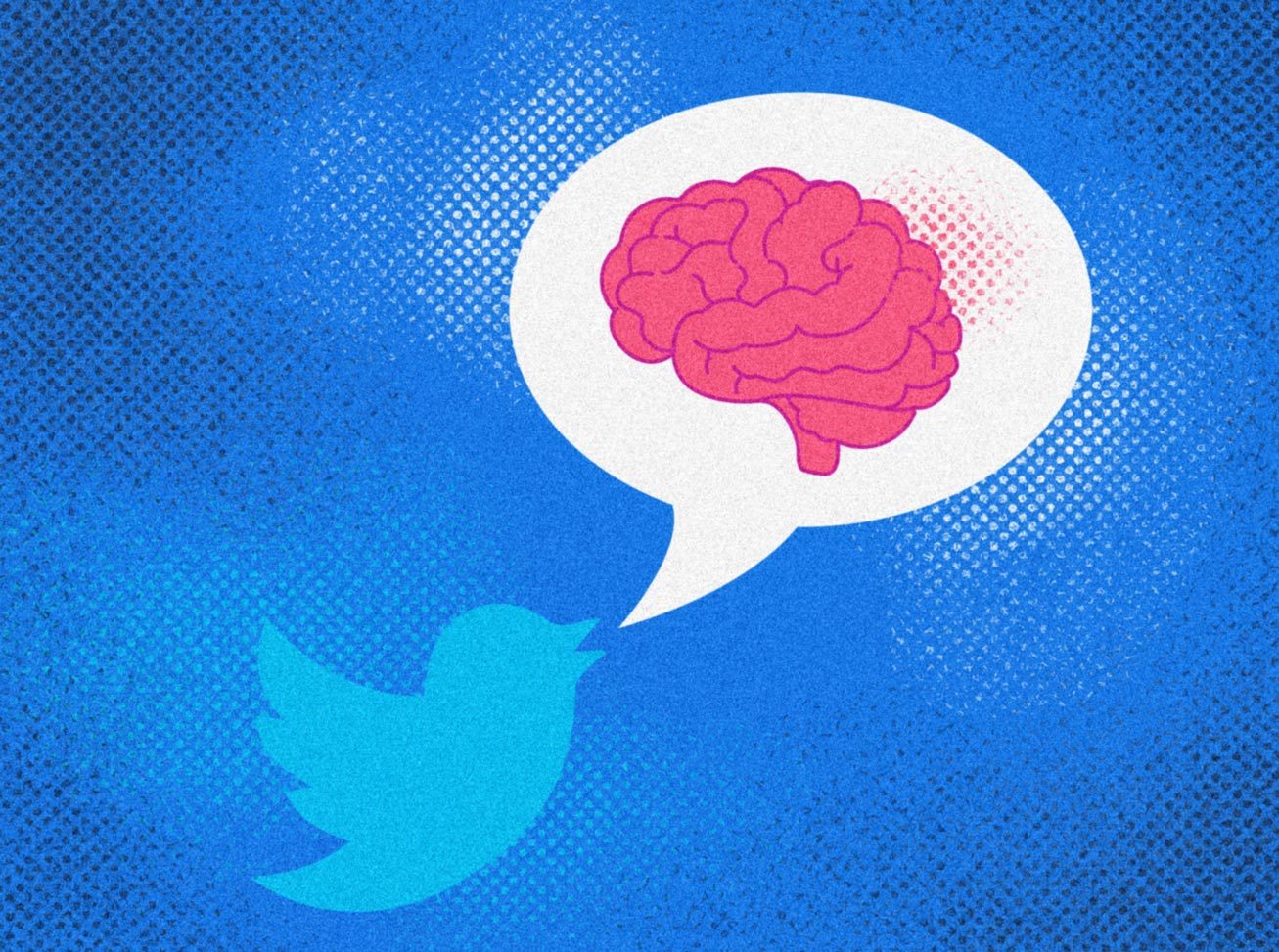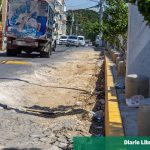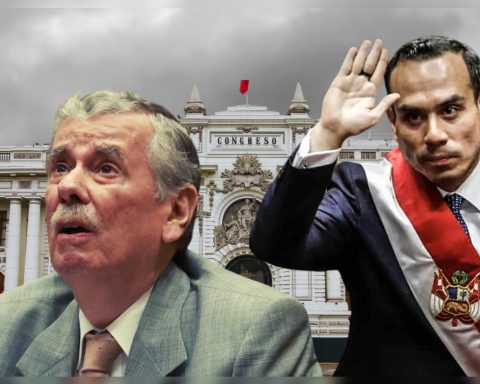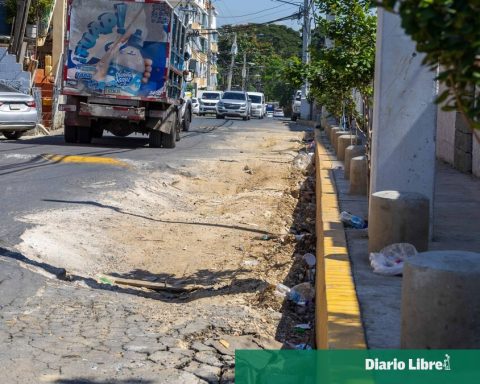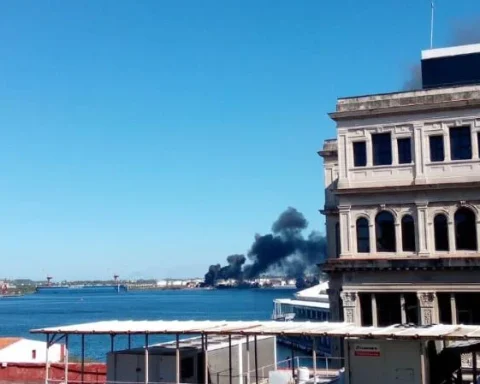People are screaming their pains using social networks in Nicaragua, turned into wailing walls and a channel to ask for emotional help. Expressions of deep sadness, suffocation, more crying emoticons and exploding head are registered. These expressions have been published on Facebook and Twitter related to the socio-political crisis that the country has been experiencing since 2018, as revealed by our systematic observation carried out since December of that year to date.
Sometimes a tweet is not just a tweet, but the only way the user found to say how unnameable it makes him suffer, launched as a message in a bottle towards the troubled sea of timelines. Sometimes, it is a status on Facebook where the user narrates her state of anxiety delving into details to exercise her freedom to express her emotions and share how she got out of the hole. And his followers answer him “x2”, “x100” or “x1000”, which is the format used in the networks to say that they share his sentiment.
That the political crisis affects the mental health of Nicaraguans is assured by specialists who are attending to stories of citizens who center the origin of their ills in the repression exercised by the regime in the streets and on social networks. Now also, the latter are used to express what political violence has caused. The repressed now cry out the aftermath of the repression.
“Digital spaces and social networks are being spaces to express oneself, do catharsis and even obtain containment from other users. Many young people are read with deep anxiety attacks, panic attacks and even claiming to have problems with their daily activities such as study or work, “says” Helen, “a Nicaraguan psychologist who prefers that we not publish her true identity to protect her safety. . She works with people in the neighborhoods, outside of Managua and has observed the dynamics of Internet users since before 2018.
What Nicaraguan people say when they express their emotions in crisis
For Franklin Hooker, specialist in gender and communication, “many and many emphasize narratives such as” here and now “,” one day at a time “,” dawn, always dawn “,” embrace hope “,” ask for help is good ”,“ life worth living ”,“ putting life at the center ”,“ we will get out of this crisis ”,“ there is no evil that lasts 100 years ”,“ transforming pain into a fight against oblivion ”. Through these narratives they tell how they are dealing with crises, or else they offer words of encouragement to other people to support their emotional recovery processes ”.
Hooker, who also studies “Subversive narratives of lesbians and homosexuals in Nicaraguan cyberspace” and she works in the La Corriente Feminist Program, she also recalls that “in social networks people reflect on the responsibility of speaking and processing the grief and wounds that institutional violence opens, because in the 80s it was an issue that was not addressed with the emergency that was required (no public health policies were implemented), the efforts to advance in the elaboration of post-war duels came from civil society organizations ”.
The traumas generated by the wars that the country has suffered previously – and that were not adequately resolved – have passed on to generations and those who have experienced the current repression live in a multi-trauma situation within families.
Being personal stories that are published on social networks for their confirmed followers, we asked their permission to publish them and they kindly declined because precisely this is another psychological manifestation of what is happening: they want to avoid adding to their suffering the political and cultural stigma regarding expressing in public their wounds, that the regime repress them also because they are affected by having been politically repressed.
Therefore, of all the published stories, we have detected five expressions –among many– of how the sociopolitical crisis continues to affect mental health and how users express them on Nicaraguan social networks:
- Need to grieve with dignity
The mothers, fathers, relatives, and friends of the people killed by the paramilitaries were prevented from expressing their pain in public. They have been broken with pain when they saw their dead children, they could not bury them with dignity, they had to listen to how the rulers despised their dead, from the Ortega social networks they made fun of each murdered person. Mourners now use social media to celebrate masses on-line in memory of his relatives every month, every year. They continue to demand that justice be done in the only place they have – their networks – to place the photo of their relatives without the Police coming to threaten. And above, carrying their pain they have been forced to flee to other countries.
- Witness agony and death live
The need to be informed about the brutal repression of the regime forced the users of social networks to be immediate witnesses of the deaths and agonies of the people killed by the paramilitaries. They were videos that were broadcast live and with the immediacy that characterizes networks, they went viral, reaching almost all Nicaraguan digital communities. There is hardly a user who has not been exposed to the agony and death of one of the 355 murdered by the regime. Facing death in this way caused anxiety in some users. Furthermore, “the arrests and sieges of young people greatly alter people’s moods, anxious states, inability to concentrate on their activities and a lot of hopelessness are read on networks,” analyzes “Helen”.
- Young people with truncated dreams, without work
The repression caused the socio-political crisis and this caused the economic crisis, too. Many citizens resigned from the regime’s companies in order not to be collaborators in the repression. Others, heads of families, had to go into exile to save their lives. “I lost my job”, “we are starting alone”, “here is my CV, help me with a retweet”, “we just got married, we were going to buy our house, now we have to go into exile to develop as professionals” are some of the phrases that rotate through social networks expressing the truncated dreams of young people. The sentences always begin with “help for such a thing”, asking for help to be able to get out of the emotional labyrinth when seeing their future diluted between the propaganda of “normality” of the regime.
- Not being able to speak, meet, express or criticize in public
The regime prohibited the public expression of political ideas and political emotions. The Nicaraguan is prevented from expressing any human emotion related to the crisis in public, on pain of being imprisoned. The impediment to express themselves causes in the human being, not silence, but an accumulation of stuck ideas that push to get out. And they will come out in the form of dreams or nightmares, insomnia, lack of appetite or excessive appetite. It is the repression of pleasure, because expressing yourself is a pleasure. Thus, Nicaraguans live the prohibitions that political prisoners live, more than 150 that Daniel Ortega confined in his dungeons for expressing his ideas in public. “It’s not that I suffered from insomnia, it’s that I needed to sleep with him by my side. Now I sleep well, “wrote in a celebrated tweet a young woman who was reunited with her young daughter after three years of having fled along the sidewalks when the regime’s paramilitaries were chasing her across the country.
“Social networks have been a space for flight, refuge, catharsis, a focal point to ask for help, to feel heard, understood, accompanied, supported. A place where users have been able to talk about the duels generated by the crisis in April (2018) and the multiple manifestations in physical and emotional health ”, reflects Hooker.
- The Orteguistas also cry
The political crisis also affects the mental health of the people who participate in the regime. It is enough to observe how Ortega and Murillo are upset when they speak in public emitting words of hatred towards the citizens who oppose them, and how they are not upset when they should be emotionally upset when talking about the crisis that citizens are experiencing. The excessive use of security guards for themselves and their families reveals the experience of terror that “something” happens to them. The same happens in the Ortega social networks where they manifest an authentic obsession with “los puchos” and negative emotions overflow with selective harassment and wish that they “disappear” as if they were ghosts that haunt them. And let it not be said of the greatest emotional cry of the trauma of the war of the 1980s that the paramilitaries related to Sandinismo emitted who, hiding with ski masks and waving their weapons, celebrated the attacks singing “the commander stays.” Even dancing the deaths. The regime gave them the role of “the soulless”, perpetuating the trauma.
We want to share this little thread about:
What can you do to contribute to suicide prevention?⬇️
– Heal Nicaragua (@Sanar_nic) November 24, 2021
Social networks help to get out
Some people shout their pain through social networks and others shut it up and decide to take their own lives because they cannot find a way out of their anguish. Suicide cases are on the rise, according to the Nicaraguan users themselves, who also use their social networks to say goodbye to their friends who decided on their own.
“I consider that the most important thing when encountering tweets or desperate states, is to understand that the person is making use of an important resource that is to remove or externalize it, regardless of whether it is a digital space, it is their way of doing it”, warns “Helen” , and adds that it is “important to take into account not to invalidate what the other person is feeling, the news about the political situation impacts each person differently. Containment can also be offered, so that the person knows that he is not alone and deserves to be listened to, also letting him know of spaces that offer help to be attended by professionals ”.
Hooker agrees and reports that “in the case of LGBTIQ + people there is a national Observatory of situations of discrimination and violence against dissident bodies, an initiative coordinated by the La Corriente Feminist Program and where, in addition to the documentation of facts, people can request support to psychosocial accompaniment ”.
If the word “suicide” is typed on Twitter, the company that owns the social network offers in some countries information that stands out visibly to call the numbers of local organizations that help people to reconsider their emotional situation. If you type on Facebook, the Meta company highlights where to go if the user presents depression, anxiety, stress, grief and loss. It says, “Explore suggestions. See expert ideas on positive actions you can take to take care of your emotional health. “
In Nicaragua, psychology and psychiatry professionals have organized a self-convened, very discreet network to serve users who request them to “resolve and work” on their emotional states. And also, within the same social networks, accounts act, protecting their identity, that carry out social prevention campaigns and help develop resilient habits to face the sociopolitical crisis.
You have to follow these accounts on Twitter and Facebook, to request help, to stay informed, to recommend someone, to ask for guidance on how to help others. Here are the accounts of groups of psychologists who maintain a public profile in Nicaragua:
